When critics are waiting to pounce upon poetic style on exactly the same grounds as if it were prose, the poets tremble. |
|
TOMORROW: My Book World | Aaron Smith's The Book of Daniel: Poems
0 Comments
FRIDAY: My Book World | Aaron Smith's The Book of Daniel: Poems
FRIDAY: My Book World | Aaron Smith's The Book of Daniel: Poems.
My Book World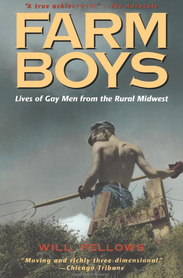 Fellows, Will. Farm Boys: Lives of Gay Men from the Rural Midwest. Madison: U of Wisconsin Press, 1998. This book has been on my shelf for over twenty years. If I had read it when it was new, it might have seemed fresher. As it is, the men featured here, born between 1907 and 1967, seem stuck in their contemporary argot. I wonder if gay farm boys are still experiencing the same universals, some of which dovetail well with so-called urban gays. Young farm boys seem to have more interest in growing beautiful things like gardens instead of livestock; they enjoy cooking more than being outside. Insofar as it is possible, given small rural school districts, they become involved in the arts and often excel in them. Over and over again, you see gay farm boys say they don’t care for picking up tricks or one-night stands, that they would prefer long-term relationships but that rural life makes that kind openness impossible. The reader cannot imagine the number of these men who have sex with male siblings and other relatives before they begin to engage with and marry women. Perhaps the most prevalent commonality is the harm religion, particularly Catholicism, causes young boys and men as they search for a way to express their sexuality and find a partner with whom they can share a life. Like the urban gay youth, they more often than not experience a sympathetic mother and a distant or hostile father because the gay son doesn’t fall into line. By the end, I almost felt as if I were reading the same four or five profiles over and over again. And yet I know I wasn’t. Every gay man’s story has something in common with others and every story has its differences, its unique qualities, which set that man apart. What would be interesting now would be for Fellows (or some other courageous writer/scholar with boundless energy) to interview gay farm boys born between 1970 and 1995. Have their experiences been different than the generations before them? How does arranging for sex online compare to picking someone up at a bar or at some Interstate rest room? Are fathers still as intractable about masculinity and what that means? Has the world at large made any dent at all into the sequestered lives of rural Americans? This fascinating book seems to invite an ongoing discussion in which these and other questions are explored. NEXT FRIDAY: My Book World | Aaron Smith's The Book of Daniel: Poems
How the Library of Congress Helped Me Organize My Personal LibraryIn 2010, during a visit to Washington DC, Ken and I visited the Library of Congress. I wasn’t expecting much, just another bureaucratic governmental building of a nondescript nature. But I was surprised and delighted to discover its Beaux-Arts classical façade and elaborate interior. At that time, I began to wonder if I might organize my own library by way of the LC system. After all, by 2020, I owned over 1,300 volumes. Through the years, I had given away books I knew I would never read or read again. I finally gave away some of the assigned texts I had read at Southwestern College (making sure that the TTU Library had a copy in case I ever wanted to revisit those books). In the summer of 2019, I took a short break from writing, about five hours a day over five weeks in order to catalog my collection. I touched every hardback, examining its dust jacket or blurbs on the back of each paperback to see if I wanted to keep it. I touched each book again as I wrote the determined call number in pencil following the copyright page, touched it again as I labeled the spine, and touched it once more as I made a Word document accession list of my holdings. That would be so that in the future I could find what I wanted when I wanted it, something I had not always been able to do with my previous rather free-form mode of organization. (I also found duplicates of books I’d bought, not recalling that I already possessed a copy.) The undertaking was an awesome (despite the weakening of that word) task to follow that procedure for every book, then reshelve the entire collection in the correct order. But since then, the job has proven valuable because I can quickly locate or reshelve a book and it has a “permanent” place, as do certain bytes in my laptop, as do certain memories in my brain. My collection is an integrated whole yet one that welcomes a new book by reserving a unique place for it.
How did I locate or generate all those LC call numbers? one might ask. I checked the copyright page of each book, especially if it was published sometime after the late 1980s. Very often the publisher had already acquired an LC number and all I had to do was copy it out. If the book did not have a call number, I consulted the TTU Library online catalog. I would say that I retrieved at least fifty percent of my numbers from there. Last, I discovered that the Library of Congress (duh) also sported its very own online catalog of vast holdings. That source gave me nearly the rest (or often I could “generate” a number similar to a different book by the same author). What about new books? They are often a bigger problem than old ones. Many publishers now seem to rush a book to publication without waiting to receive a call number from LC, and so it must sit on a separate shelf of mine until one day the LC catalog will list its call number. A librarian’s job is never done. Yay. It means one is always acquiring and reading new books. I’ve enjoyed writing about my lifetime of library experiences this week. I might briefly say that the Lubbock City/County Libraries support one main building and three branches. I’ve used the main Mahon Library from time to time, particularly when reading fiction; my writing group has met in a small room there. If you have a comment or a library experience you would like to share with my readers, please leave it in the Comment section. If you enjoyed any of these posts, please copy the URL and send a link to your friends. Thank you. TOMORROW: My Book World | Will Fellows's Farm Boys: Lives of Gay Men from the Rural Midwest
Texas Tech University Library: |
A WRITER'S WIT |
SOUTHWESTERN COLLEGE LIBRARY --
SMALLER DOES NOT MEAN INFERIOR
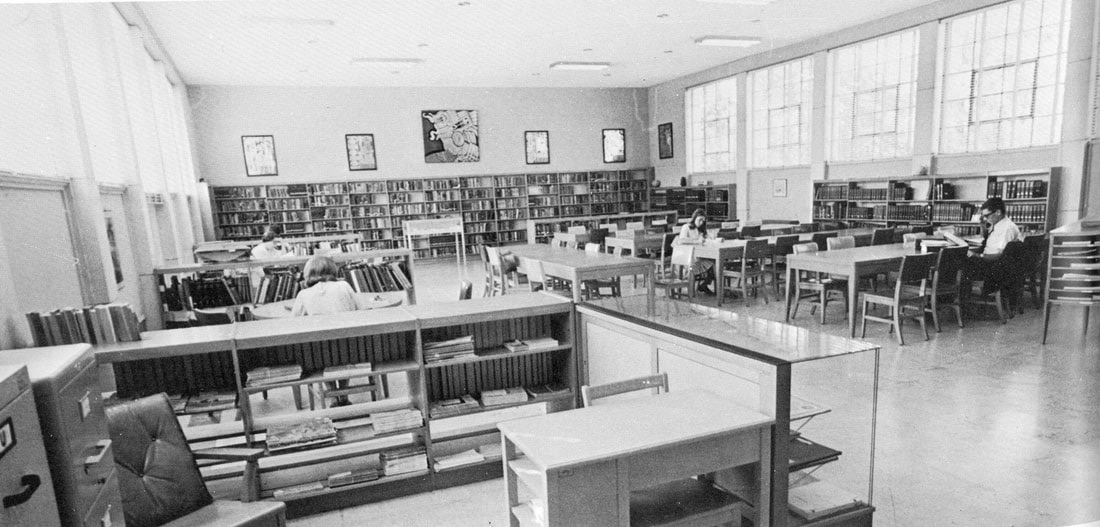 Reading Room, Southwestern College Library, c1966 | Photo from 1967 Moundbuilder Yearbook
Reading Room, Southwestern College Library, c1966 | Photo from 1967 Moundbuilder Yearbook TOMORROW: I Celebrate National Library Week | Texas Tech University Library
A WRITERS' WIT |
The Many Wichita Public Libraries
I began visiting libraries early. At Wichita’s Longfellow Elementary, where over six hundred students filled a building constructed for fewer pupils than that, there wasn’t much room for a library, but toward the end of my time there, in 1960, I believe two classrooms were combined to form the library.
Still, especially in the summer, it was not enough library for me. My mother would load my siblings and me in the car and take us downtown to the Wichita Carnegie Library (opened 1915), about twenty blocks from our home. Later, I would board a public bus and make the trip by myself. I relished the smell of old books, paper thinned by all those fingers turning pages down the path of the next exciting plot. And in those days I mostly read for plot. I mean, I did fall in love with the characters I read about. I loved the settings the authors created. But mostly, I wanted to know where those characters were going, what they were doing or what they were going to do to solve their myriad problems. I adored climbing the stairs to search for books in the stacks, attempting to read all the books of a favored author before moving on to another.
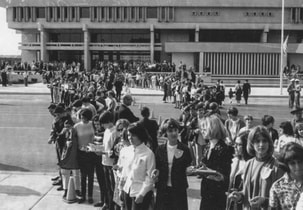 Students Transfer Books to Wichita Library c1966 | Wichita Photo Archive
Students Transfer Books to Wichita Library c1966 | Wichita Photo Archive No matter how small, libraries maintain important places in our lives. They can fill certain voids from which our individual lives may suffer. Today, in honor of National Public Library Week, think about your first library, and what it contributed to your life. Make a donation!
TOMORROW: I Celebrate National Library Week: Southwestern College Library
A WRITER'S WIT |
My Book World
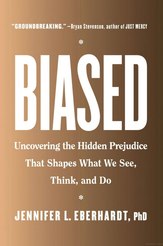
An excellent book for every American to read. Why? Dr. Eberhardt addresses the concept of implicit bias, and she begins with some great examples that lead to a clear definition:
“Whether bad or good, whether justified or unjustified, our beliefs and attitudes can become so strongly associated with the category that they are automatically triggered, affecting our behavior and decision making. So, for example, simply seeing a black person can automatically bring to mind a host of associations that we have picked up from our society: this person is a good athlete, this person doesn’t do well in school, this person is poor, this person dances well, this person lives in a black neighborhood, this person should be feared. The process of making these connections is called bias. It can happen unintentionally. It can happen unconsciously. It can happen effortlessly. And it can happen in a matter of milliseconds. These associations can take hold of us no matter our values, no matter our conscious beliefs, no matter what kind of person we wish to be in the world” (31-2)
And study she has. Eberhardt teaches at Stanford University and is a well-respected scientist in her field. In this finely written book, she combines research (hard statistics) with personal examples (her own plus observations of others). She begins the book speaking about the Oakland, California police department whose leadership is attempting to address bias. She addresses a small auditorium of polite, white officers, most of whom have their arms crossed, body language for Show me. It may be the most difficult lecture she ever gives. In wrapping up her book she speaks once again of the Oakland police, after ten years of training, and she views things from their perspective, demonstrating, I believe, her global understanding of the problem and of human nature. Again, a must-read for all of us.
Honestly, I get character ideas from the most inane places. Sometimes a song will give me an idea. Sometimes I will just hear a snippet of conversation that ends up having nothing to do with the book that emerges. |
The much vaunted male logic isn't logical, because they display prejudices against half the human race that are considered prejudices according to any dictionary definition. |
In France we have a saying, “Joie de vivre,” which actually doesn't exist in the English language. It means looking at your life as something that is to be taken with great pleasure and enjoy it. |
A WRITER'S WIT |
My Book World
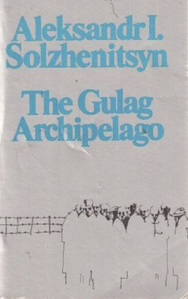
In some ways I’m embarrassed to say that this book has been on my shelf since 1974—unread. It is a paperback of such vintage that I had to be careful about cracking the ancient glue in the spine or pages would have fallen out. Though the read was a slog—not having a Russian history background—I was able to glean much of its purpose. The writer wishes for people in the West to know that Russian citizens experienced a purge probably as horrendous as what took place in Germany in the 1940s, if not worse. At least a million Soviet citizens held in custody by the Allies at the end of World War II were handed over to officials at the end of the war. This does not include other enemies of the people.
One must remember scads of acronyms in this book, and yet they are based on the Russian words, not the English version, so it is more difficult to recall the connections. For example SMERSH stands for Soviet counterintelligence but means “death to spies.” GPU stands for Russian words meaning State Political Administration. Also difficult to recall for an English reader are people’s names; except for Stalin, most are quite multisyllabic.
Yet there is much the naïve reader can take from this book. Solzhenitsyn speaks bluntly of many things.
“I smiled in pride that I had been arrested not for stealing, nor treason, nor desertion, but because I had discovered through my power of reasoning the evil secrets of Stalin. I smiled at the thought that I wanted, and might still be able, to effect some small remedies and changes in our Russian way of life” (167)
The Russians present to the world such a mixed and puzzling heritage. On the one hand, we treasure great Russian literature and drama, superb music including ballet, fine visual art and more. On the other, Russians, either by way of their isolation from the rest of the world, and its inherent paranoia, have a mean streak in their DNA, whether it is by way of the Czarist leaders, the Soviets, or post-Soviet PutinWorld. They desire to be respected as a substantial part of the world, but simply put, do not know how to play nice. And it seems to be a cycle that is difficult to break.
NEXT FRIDAY: My Book World | Jennifer L. Eberhardt's Biased: Uncovering the Hidden Prejudice That Shapes What We See, Think, and Do
Men should be judged not by their tint of skin, the gods they serve, the vintage they drink, nor by the way they fight, or love, or sin, but by the quality of the thought they think. |
My mother studied English and drama at the University of Pennsylvania, where my father studied architecture. She was a great influence in all sorts of ways, a wicked wit. |
A WRITER'S WIT |
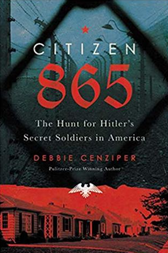
Cenziper focuses her book on two main groups. First, she tells the story of Polish Jews who, during World War II, become Hitler’s pawns. Hitler is looking to expand Germany’s borders so that his people have more space in which to live, so he annexes Poland. After the war, some of these displaced persons flee to the US, for they have no one or nothing left at home. The other group Cenziper develops is the people who work for the Office of Special Investigations (OSI), one of whom is a fresh new historian, Peter Black. Historians are relentless researchers, so they make a good team along with others, lawyers, in particular.
Their work is to ferret out particular ex-Nazi’s, particularly “Citizen 856,” who later minimize their involvement with killing Jews to US Immigration officials, and thus gain illegal entry into the country—a frightening idea to the legal immigrants living nearly side-by-side their torturers in some cases. The OSI spends decades building cases against this group of Ukrainians and Russians who are recruited and rewarded by the Nazis for carrying out their orders to exterminate about 1.7 people. The OSI’s work is arduous and their results are mixed. Because most of the accused Nazis appeal the decision to be returned to their native countries to face trial there (except in Germany, where officials do NOT want these people back), some of them die before deportation, but a few do have to face justice in their home countries.
Some Americans, like Pat Buchanan, oppose the OSI’s work, want to dispose of the OSI. They believe those mass murderers should be forgiven and forgotten. It is difficult to see how these usually conservative people, can form such a free-and-easy view of what should happen to war criminals—when otherwise they are usually such hawks. Is that really a Christian posture? Maybe someone will write a book about them to figure out why they would hold such a position.
In the playground, I always made people laugh; I used to charge them three pence for an impression of a teacher. It kept me in toffees. |
The thing is, emotion—if it's visibly felt by the writer—will go through all the processes it takes to publish a story and still hit the reader right in the gut. But you have to really mean it. |
Richard Jespers is a writer living in Lubbock, Texas, USA.
http://amazon.com/author/rjespers
Archives
June 2024
May 2024
April 2024
March 2024
February 2024
January 2024
November 2023
October 2023
September 2023
August 2023
June 2023
May 2023
April 2023
March 2023
February 2023
January 2023
December 2022
November 2022
October 2022
September 2022
August 2022
July 2022
June 2022
May 2022
April 2022
March 2022
February 2022
January 2022
December 2021
November 2021
October 2021
September 2021
August 2021
July 2021
June 2021
May 2021
April 2021
March 2021
February 2021
January 2021
December 2020
November 2020
October 2020
September 2020
August 2020
July 2020
June 2020
May 2020
April 2020
March 2020
January 2020
December 2019
November 2019
October 2019
September 2019
August 2019
July 2019
January 2019
December 2018
November 2018
October 2018
September 2018
August 2018
July 2018
May 2018
April 2018
March 2018
February 2018
January 2018
December 2017
November 2017
October 2017
September 2017
August 2017
July 2017
June 2017
May 2017
April 2017
March 2017
February 2017
January 2017
December 2016
November 2016
October 2016
September 2016
August 2016
July 2016
June 2016
May 2016
April 2016
March 2016
February 2016
January 2016
December 2015
November 2015
October 2015
September 2015
August 2015
July 2015
June 2015
May 2015
April 2015
March 2015
February 2015
January 2015
December 2014
November 2014
October 2014
September 2014
August 2014
July 2014
June 2014
May 2014
April 2014
March 2014
February 2014
January 2014
December 2013
November 2013
October 2013
September 2013
August 2013
July 2013
June 2013
May 2013
April 2013
March 2013
February 2013
January 2013
December 2012
November 2012
October 2012
September 2012
August 2012
July 2012
June 2012
May 2012
April 2012
March 2012
February 2012
January 2012
December 2011
November 2011
October 2011
September 2011
Categories
All
Acting
Actors
African American History
Aging
Alabama
Alaska
Aldo Leopold
Andy Warhol
Arizona
Arkansas
Art
Atrial Fibrillation
Authors
Authors' Words
Barcelona
Blogging About Books
Blogs
Books
California
Cancer
Cars
Catalonia
Colorado
Cooking
Creative Nonfiction
Culinary Arts
Deleting Facebook
Ecology
Education
Environment
Epigraphs
Essays
Fiction
Fifty States
Film
Florida
Georgia
Grammar
Greece
Gun Violence
Hawaii
Heart Health
Historic Postcards
History
Humor
Idaho
Iowa
LGBTQ
Libraries
Literary Biography
Literary Journals
Literary Topics
Literature
Maine
Massachusetts
Memoir
Michigan
Minnesota
Mississippi
M K Rawlings
Musicians
Nevada
New Hampshire
New Mexico
New Yorker Stories
Nonfiction
North Carolina
Novelist
Ohio
Pam Houston
Parker Posey
Photography
Playwrights
Poetry
Politics
Psychology
Publishing
Quotations
Race
Reading
Recipes
Seattle
Short Story
South Carolina
Spain
Susan Faludi
Teaching
Tennessee
Texas
Theater
The Novel
Travel
Travel Photographs
True Crime
#TuesdayThoughts
TV
U.S.
Vermont
Voting
War
Washington
Wisconsin
World War II
Writer's Wit
Writing
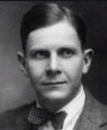
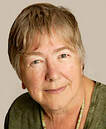










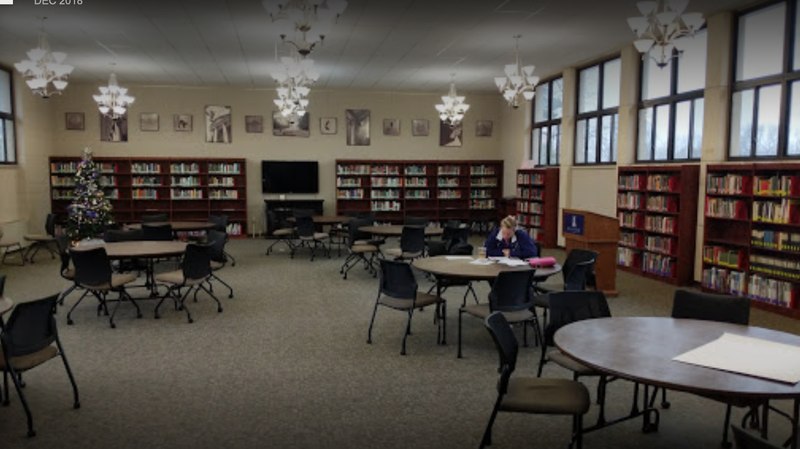

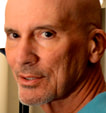
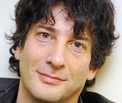
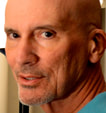




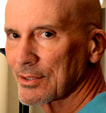

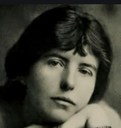


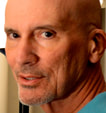


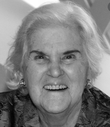

 RSS Feed
RSS Feed